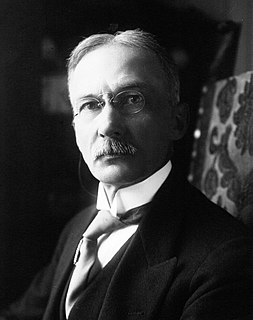A Quote by Charles Proteus Steinmetz
When it comes to scientific matters the ready talkers simply run riot. There are a lot of pseudo-scientists who with a little technical jargon to spatter through their talk are always getting in the limelight... The less they know the surer they are about it.
Related Quotes
Our foreign ministries will simply need to sort out some purely technical matters. I see no political restraints here. The same applies to economic matters. We, on our part, are ready. However, let me repeat once again, given that Japan has joined the anti-Russian sanctions, how ready is Japan and how can it do that without breaching its commitments to its allies? We do not know the answer. Only Japan itself knows the answer.
Getting signed shouldn't be the point. I made that mistake early on and I think a lot of people do. It's not something you should rush into. I think I'm actually lucky that when I went to visit labels when I was 20 years old and played and they thought I wasn't ready, it was probably a good thing because I wasn't ready. I didn't know what I was getting intoat the time. I mean, you never know exactly what you're getting into. There's a lot of stuff that's going on right now that's new to me but there's also a lot that I'm lucky to know how to handle.
The better you get, the less you run around showing off as a muscle guy. You know, you wear regular shirts-not always trying to show off what you have. You talk less about it. It's like you have a little BMW - you want to race the hell out of this car, because you know it's just going 110. But if you see guys driving a Ferrari or a Lamborghini, they slide around at 60 on the freeway because they know if they press on that accelerator they are going to go 170. These things are the same in every field.
[Science fiction is] that class of prose narrative treating of a situation that could not arise in the world we know, but which is hypothesised on the basis of some innovation in science or technology, or pseudo-science or pseudo-technology, whether human or extra-terrestrial in origin. It is distinguished from pure fantasy by its need to achieve verisimilitude and win the 'willing suspension of disbelief' through scientific plausibility.
I belong to a bowling team with black and Latino coworkers. And when we get together and we talk about politics - I'm almost quoting him - he said, we don't talk about Black Lives Matters. We talk about what matters to our families. We talk about jobs, and we talk about the fate of the country. That is America, and you can reach those people.
It seems to me that there is a good deal of ballyhoo about scientific method. I venture to think that the people who talk most about it are the people who do least about it. Scientific method is what working scientists do, not what other people or even they themselves may say about it. No working scientist, when he plans an experiment in the laboratory, asks himself whether he is being properly scientific, nor is he interested in whatever method he may be using as method.
I think there's some pretty amazing language in the Bible. The thing that's always been interesting to me about religion is that compared to the more modern spirituality, the West Coast pseudo-Buddhist thing that people go for these days, actual Buddhism and Islam have been looking at these philosophical questions, at really hard questions, for a long time. There's a lot of stuff that philosophy doesn't talk about, and in the secular world, a lot of times, people don't talk about these ideas, and that was always really interesting for me.
I do talk and think a lot about the legacy before me. I feel like if I didn't know that people had been in Montgomery sixty years ago trying to do similar things that I'm trying to do, with a lot less, with fewer resources, with less security, with less encouragement, with less opportunity - if I didn't know that, then I think doing what I do would be much, much harder.
Science will always raise philosophical questions like, is any scientific theory or model correct? How do we know? Are unobserved things real? etc. and it seems to me of great importance that these questions are not just left to scientists, but that there are thinkers who make it their business to think as clearly and slowly about these questions as it is possible to. Great scientists do not always make the best philosophers.







































